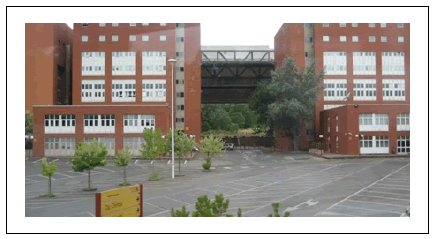Journal of Chemical Engineering & Process Technology
Open Access
ISSN: 2157-7048
ISSN: 2157-7048
Value Added Abstract - (2021)Volume 12, Issue 6
Bitumen is a black, soft viscoelastic material which is made up of several components (predominantly hydrocarbons and their derivatives). It is obtained by fractional distillation during petroleum industry refinery processes of crude oil. Bitumen is a complex solid or semisolid colloidal dispersion of asphaltenes in a continuous oily phase of saturated paraffins, aromatics and resins. The chemical composition of bitumen is largely dependent on the initial crude oil and the cracking process carried out on it. Bitumen is widely used as a binder for asphalt mixes in the construction of pavements throughout the world. Bitumen is easily oxidized during paving and pavement service life, especially under thermal and/or ultraviolet radiation (UV) conditions. Oxidized bitumen is very hard because at high temperatures, its aromatic components and resins which are responsible for a certain grade of mobility are oxidized to asphaltenes and reduced to saturate. Hence, asphaltene micelles become larger so that the fluidity of the system is reduced. Additives which act on the chemical structure of aged bitumen to restore its physical properties to a state very similar to virgin bitumen are called rejuvenators and these are used in order to reverse the effects of oxidation on asphalt. Similarly but not interchangeably, softening agents can be used and these are capable of restoring only the physical properties. One way in which oxidized bitumen is of practical importance is the use of Reclaimed Asphalt Pavement (RAP). Reclaimed asphalt pavement (RAP) refers to removed and/or reprocessed pavement materials containing asphalt and aggregates. In recent years, researchers have conducted many investigations on the use of RAP materials in the production of recycled asphalt and this shows some promise and potential in understanding bitumen aging and how to mitigate this problem. This study aims at evaluating the different performances between a new chemical additive (called TPI) and a softening agent (soy oil) which both function as rejuvenating agents. The effects of the additives on aged bitumen have been investigated through advanced rheological (Dynamic shear rheometer DSR) analysis, Atomic force microscopy (AFM), Infrared spectroscopy (IR) and optical microscope.
Caputo Paolino obtained his PhD in Life Science and Technology from the University of Calabria, Italy. He is currently a post-doc researcher in the department of Chemistry and Chemical Technologies at the University of Calabria. He is also an afferent of the National Inter-University Consortium of Materials Science and Technology (INSTM) which is the largest consortium of its kind in Italy, drawing on the expertise of not less than 50 universities – and all those that are active in Italy in researching advanced materials and technologies. His research focuses on physical chemistry with a main focus on bitumen characterization and food based industrial materials and compounds. He has over 35 publications with over 350 citations. He serves as a reviewer for several reputable physical chemistry journals and from October 2020 became a member of the Topic Editorial Board of the journal- Materials. He is also one of the inventors of the Anti-smoke Patent (release date: October 31, 2018; number 102016000041219).

Received: 20-Jan-2021 Accepted: 27-Jan-2021 Published: 19-Mar-2021
Copyright: This is an open access article distributed under the terms of the Creative Commons Attribution License, which permits unrestricted use, distribution, and reproduction in any medium, provided the original work is properly cited.